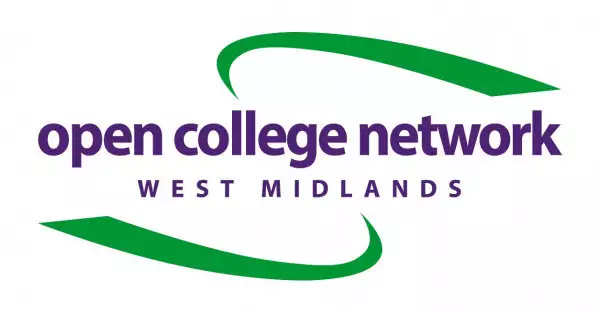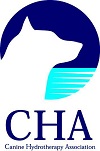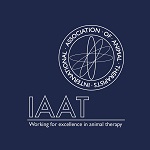Veterinary Physiotherapy with Hydrotherapy Level 6 Diploma (RQF) - Part 3
 86.8%
86.8%
- SALE Savings End Midnight Tuesday 13th January
- SALE Savings End Midnight Tuesday 13th January
Veterinary Physiotherapy with Hydrotherapy Level 6 Diploma (RQF) - Part 3
Key Points
- Study the advanced methods used by Veterinary Physiotherapists and Animal Hydrotherapists.
- Learn the advanced therapy methods used for small animals on land and in water.
- Discover in-depth knowledge on animal rehabilitation and various therapies and treatments.
- Gain 25 days of physiotherapy training and assessments.
- Plus 800 hours of clinical practice experience.
About your Course
The Level 6 Diploma in Veterinary Physiotherapy with Hydrotherapy is an advanced degree-level qualification. This qualification will enable you to become a qualified Small Animal Physiotherapist and work with animal patients in and out of the water.
This course is for learners aged 18+ who must have a Level 3 Diploma in Hydrotherapy (including treadmill unit – with either ABC/SEG, AIM Qualifications Assessments Group.
Students must complete 800 hours of clinical practice, and 25 days of practical training and have prior experience in the animal industry.
The course includes 51 mandatory units, split across three parts.
- Part 1 includes Level 4 in Advanced Small Animal Hydrotherapy. (Not included in this payment)
- Part 2 includes Level 5 in Veterinary Physiotherapy with Hydrotherapy. (Not included in this payment)
- Part 3 includes Level 6 in Veterinary Physiotherapy which is the final stage. (Included in this payment)
You must complete all parts (Part 1, Part 2, and Part 3) to obtain a certificate and become qualified in Small Animal Hydrotherapy and Veterinary Physiotherapy.
Getting Started
learndirect is the UK’s leading online course provider. Our online courses give you the flexibility to engage with your studies whenever suits you best.
The benefit of blended online learning means that you can plan your studies around your existing commitments. So, you’re able to progress with your learning in a way that works for you, without the stressful balancing act.
What’s more, we have dedicated and experienced online tutors to support you throughout your course. As well as all the material being readily available as soon as you enrol so you’re able to start right away.
Modules
Advanced Anatomy and Physiology
- Study the anatomical structures contained within the cardiovascular, respiratory, digestive, and urinary systems.
- Learn the impact of physiotherapy on the body
Advanced Canine and Feline Behaviour
- Study the behavioural implications which may arise because of pain
- Understand how a patient’s behaviour may change in response to fear
- Learn how to deal with aggressive canine and feline patients
- Discover how to use behavioural modification and training techniques to make the session a positive experience for the patient
Advanced Neuro Physiotherapy
- Gain a greater understanding of the anatomy of the central and peripheral nervous systems
- Study spinal reflexes and the information they give about a patient’s neurological function
- Learn how to perform a neurological exam on an animal patient
Clinical Practice
- Undertake a minimum of 800 clinical practice hours across the duration of their training
- This training will be supervised and will allow learners to observe and apply aspects of learning and practical skills required for the veterinary physiotherapy profession
Clinical Reasoning
- Study the clinical reasoning in the rehabilitation setting and how clinical reasoning errors occur
Hydrotherapy and Physiotherapy Programmes for Rehabilitation of the Injured Patient
- Explore the common injuries which patients are referred for rehabilitation
- Learn how to create treatment goals for patient rehabilitation.
- Develop a hydrotherapy/ physiotherapy treatment plan for rehabilitation
- Learn how to evaluate the response to a treatment plan for rehabilitation
Pathology
- Discover the anatomical structure of the cell and the function of the components which make up the cell
- Understand the causes of cellular damage and how different types of injury affect the cell in different ways
Physiotherapy Exercise Prescription
- Learn how to ensure the home environment is suitable for the patient
- Learn how the stage of the healing affects the exercises prescribed
- Learn how to develop an exercise prescription for a specific patient
Physiotherapy Techniques
- Discover the physiotherapy techniques that can be used for rehabilitation
- Study the techniques and equipment that can be used to enhance patient strength, range, and balance
Principles and Practise of Rehabilitation
- Learn the principles and goals of rehabilitation
- Study how differences in morphology can impact the rehabilitation of small animal patients
- Explore the different rehabilitation settings in which therapies can take place
Professional Practice Including Communication and Conduct
- Learn how to promote good practice in the veterinary hydrotherapy and veterinary physiotherapy setting
- Study how to effectively use communication and codes of conduct relating to the industry
Professional Practice for Veterinary Physiotherapists
- Examine the ethics and legislation surrounding professional rehabilitation practice
- Learn about the professional membership for Physiotherapists
Professional Project
- Conduct a supervised project, and develop an understanding of how to formulate, conduct, analyse and present a project
Professional Skills for Veterinary Physiotherapists
- Learn how to implement competent, compassionate, and safe animal handling
- Study the health and safety precautions to deliver a safe service in physiotherapy
- Understand the professional behaviour requirements for a Veterinary Physiotherapist
- Learn how to keep professional records as a Physiotherapist and the importance of doing so
Rehabilitation of the Juvenile Patient
- Study the development of the skeleton and the skeletal differences which may exist amongst juvenile patients,
- Study conditions young patients are referred for rehabilitation for and understand the ways to adapt to their needs
Small Animal Ethics and Legislation
- Explore the ethics relating to small animals with a focus on dogs, cats, and rabbits
- Explore different ethical viewpoints in small animal legislation
Treatment Case Study
- Construct a 2500–3000-word case study about a particular patient and their treatment session
Understanding Pain
- Understand the physiological mechanisms surrounding pain and the complexity of managing chronic pain
- Study how patient behaviour may be affected by pain
- Learn the pharmaceuticals commonly prescribed by veterinary surgeons to treat pain
Entry Requirements
This course is for learners aged 18+ who must have a Level 3 Diploma in Small Animal Hydrotherapy (including treadmill unit – with either ABC/SEG, AIM Qualifications Assessments Group Learners are required to complete 800 hours of clinical practice at a veterinary surgery and 25 days of physiotherapy training.
All course fees, inclusive of all payment plans including our Premium Credit Limited option, must be settled before certification can be ordered.
*You will have access to the course for 24 months.

When studying the Level 6 Diploma in Veterinary Physiotherapy with Hydrotherapy you will be asked to show your knowledge and provide evidence of your studies. Your written online assessments will be marked by a tutor.
Assessment will take the form of a range of in-depth theory assessments for each unit. Students will be assessed on their portfolio of evidence which includes practical assessments taken throughout the qualification.
In addition, students are required to attend 25 days of practical training plus 800 hours of physiotherapy clinical practice.
When are you assessed?
As you’re in control of how you learn, you’re also in charge of when you hand in your assignments.
This enables you to take as long as you need to thoroughly understand the unit before completing any assignments.
Open College Network West Midlands

After completion, students will be awarded the AIM Qualifications Assessment Group Level 6 Diploma in Veterinary Physiotherapy with Hydrotherapy. This is the equivalent of a bachelor's degree with honors, graduate certificates, and graduate diplomas.
To achieve the Level 6 Diploma in Veterinary Physiotherapy with Hydrotherapy, learners must achieve 458 credits from the 51 units in parts 1, 2, and 3.
Open College Network West Midlands are a national Awarding Organisation, regulated by Ofqual, the Quality Assurance Agency for Higher Education (QAA) and Qualifications Wales, to develop and award nationally recognised qualifications.
Open College Network West Midlands work in partnership with employers, training providers, colleges, universities, schools and voluntary and community organisations to offer vocational credit-based qualifications, Access to Higher Education Diplomas and quality assured Customised Accreditation that enables learners gain employment or to progress into further learning and Higher Education. They also Quality Endorse organisations internal training and skills delivery.
Careers
This qualification is designed for those who want to be able to practice Small Animal Physiotherapy with Hydrotherapy or for those who wish to start their own small animal business as a qualified Animal Physiotherapist.


- SALE Savings End Midnight Tuesday 13th January
- SALE Savings End Midnight Tuesday 13th January
Veterinary Physiotherapy with Hydrotherapy Level 6 Diploma (RQF) - Part 3
Key Points
- Study the advanced methods used by Veterinary Physiotherapists and Animal Hydrotherapists.
- Learn the advanced therapy methods used for small animals on land and in water.
- Discover in-depth knowledge on animal rehabilitation and various therapies and treatments.
- Gain 25 days of physiotherapy training and assessments.
- Plus 800 hours of clinical practice experience.
About your Course
The Level 6 Diploma in Veterinary Physiotherapy with Hydrotherapy is an advanced degree-level qualification. This qualification will enable you to become a qualified Small Animal Physiotherapist and work with animal patients in and out of the water.
This course is for learners aged 18+ who must have a Level 3 Diploma in Hydrotherapy (including treadmill unit – with either ABC/SEG, AIM Qualifications Assessments Group.
Students must complete 800 hours of clinical practice, and 25 days of practical training and have prior experience in the animal industry.
The course includes 51 mandatory units, split across three parts.
- Part 1 includes Level 4 in Advanced Small Animal Hydrotherapy. (Not included in this payment)
- Part 2 includes Level 5 in Veterinary Physiotherapy with Hydrotherapy. (Not included in this payment)
- Part 3 includes Level 6 in Veterinary Physiotherapy which is the final stage. (Included in this payment)
You must complete all parts (Part 1, Part 2, and Part 3) to obtain a certificate and become qualified in Small Animal Hydrotherapy and Veterinary Physiotherapy.
Getting Started
learndirect is the UK’s leading online course provider. Our online courses give you the flexibility to engage with your studies whenever suits you best.
The benefit of blended online learning means that you can plan your studies around your existing commitments. So, you’re able to progress with your learning in a way that works for you, without the stressful balancing act.
What’s more, we have dedicated and experienced online tutors to support you throughout your course. As well as all the material being readily available as soon as you enrol so you’re able to start right away.
Modules
Advanced Anatomy and Physiology
- Study the anatomical structures contained within the cardiovascular, respiratory, digestive, and urinary systems.
- Learn the impact of physiotherapy on the body
Advanced Canine and Feline Behaviour
- Study the behavioural implications which may arise because of pain
- Understand how a patient’s behaviour may change in response to fear
- Learn how to deal with aggressive canine and feline patients
- Discover how to use behavioural modification and training techniques to make the session a positive experience for the patient
Advanced Neuro Physiotherapy
- Gain a greater understanding of the anatomy of the central and peripheral nervous systems
- Study spinal reflexes and the information they give about a patient’s neurological function
- Learn how to perform a neurological exam on an animal patient
Clinical Practice
- Undertake a minimum of 800 clinical practice hours across the duration of their training
- This training will be supervised and will allow learners to observe and apply aspects of learning and practical skills required for the veterinary physiotherapy profession
Clinical Reasoning
- Study the clinical reasoning in the rehabilitation setting and how clinical reasoning errors occur
Hydrotherapy and Physiotherapy Programmes for Rehabilitation of the Injured Patient
- Explore the common injuries which patients are referred for rehabilitation
- Learn how to create treatment goals for patient rehabilitation.
- Develop a hydrotherapy/ physiotherapy treatment plan for rehabilitation
- Learn how to evaluate the response to a treatment plan for rehabilitation
Pathology
- Discover the anatomical structure of the cell and the function of the components which make up the cell
- Understand the causes of cellular damage and how different types of injury affect the cell in different ways
Physiotherapy Exercise Prescription
- Learn how to ensure the home environment is suitable for the patient
- Learn how the stage of the healing affects the exercises prescribed
- Learn how to develop an exercise prescription for a specific patient
Physiotherapy Techniques
- Discover the physiotherapy techniques that can be used for rehabilitation
- Study the techniques and equipment that can be used to enhance patient strength, range, and balance
Principles and Practise of Rehabilitation
- Learn the principles and goals of rehabilitation
- Study how differences in morphology can impact the rehabilitation of small animal patients
- Explore the different rehabilitation settings in which therapies can take place
Professional Practice Including Communication and Conduct
- Learn how to promote good practice in the veterinary hydrotherapy and veterinary physiotherapy setting
- Study how to effectively use communication and codes of conduct relating to the industry
Professional Practice for Veterinary Physiotherapists
- Examine the ethics and legislation surrounding professional rehabilitation practice
- Learn about the professional membership for Physiotherapists
Professional Project
- Conduct a supervised project, and develop an understanding of how to formulate, conduct, analyse and present a project
Professional Skills for Veterinary Physiotherapists
- Learn how to implement competent, compassionate, and safe animal handling
- Study the health and safety precautions to deliver a safe service in physiotherapy
- Understand the professional behaviour requirements for a Veterinary Physiotherapist
- Learn how to keep professional records as a Physiotherapist and the importance of doing so
Rehabilitation of the Juvenile Patient
- Study the development of the skeleton and the skeletal differences which may exist amongst juvenile patients,
- Study conditions young patients are referred for rehabilitation for and understand the ways to adapt to their needs
Small Animal Ethics and Legislation
- Explore the ethics relating to small animals with a focus on dogs, cats, and rabbits
- Explore different ethical viewpoints in small animal legislation
Treatment Case Study
- Construct a 2500–3000-word case study about a particular patient and their treatment session
Understanding Pain
- Understand the physiological mechanisms surrounding pain and the complexity of managing chronic pain
- Study how patient behaviour may be affected by pain
- Learn the pharmaceuticals commonly prescribed by veterinary surgeons to treat pain
Entry Requirements
This course is for learners aged 18+ who must have a Level 3 Diploma in Small Animal Hydrotherapy (including treadmill unit – with either ABC/SEG, AIM Qualifications Assessments Group Learners are required to complete 800 hours of clinical practice at a veterinary surgery and 25 days of physiotherapy training.
All course fees, inclusive of all payment plans including our Premium Credit Limited option, must be settled before certification can be ordered.
*You will have access to the course for 24 months.

Assessment
When studying the Level 6 Diploma in Veterinary Physiotherapy with Hydrotherapy you will be asked to show your knowledge and provide evidence of your studies. Your written online assessments will be marked by a tutor.
Assessment will take the form of a range of in-depth theory assessments for each unit. Students will be assessed on their portfolio of evidence which includes practical assessments taken throughout the qualification.
In addition, students are required to attend 25 days of practical training plus 800 hours of physiotherapy clinical practice.
When are you assessed?
As you’re in control of how you learn, you’re also in charge of when you hand in your assignments.
This enables you to take as long as you need to thoroughly understand the unit before completing any assignments.
Qualifications
Open College Network West Midlands

After completion, students will be awarded the AIM Qualifications Assessment Group Level 6 Diploma in Veterinary Physiotherapy with Hydrotherapy. This is the equivalent of a bachelor's degree with honors, graduate certificates, and graduate diplomas.
To achieve the Level 6 Diploma in Veterinary Physiotherapy with Hydrotherapy, learners must achieve 458 credits from the 51 units in parts 1, 2, and 3.
Open College Network West Midlands are a national Awarding Organisation, regulated by Ofqual, the Quality Assurance Agency for Higher Education (QAA) and Qualifications Wales, to develop and award nationally recognised qualifications.
Open College Network West Midlands work in partnership with employers, training providers, colleges, universities, schools and voluntary and community organisations to offer vocational credit-based qualifications, Access to Higher Education Diplomas and quality assured Customised Accreditation that enables learners gain employment or to progress into further learning and Higher Education. They also Quality Endorse organisations internal training and skills delivery.
Careers
This qualification is designed for those who want to be able to practice Small Animal Physiotherapy with Hydrotherapy or for those who wish to start their own small animal business as a qualified Animal Physiotherapist.


 86.8%
86.8%
learning
learning hours





















 If you find this course cheaper anywhere
If you find this course cheaper anywhere


